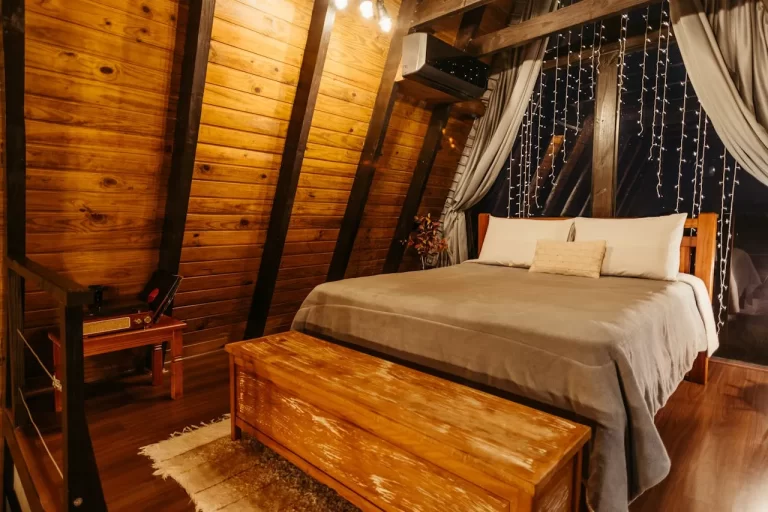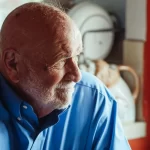Key Points
- Sleep tourism is a fast-growing wellness trend offering curated travel experiences designed to improve sleep quality.
- Luxury hotels and retreats now feature sleep-focused programs including circadian lighting, noise-blocking design, aromatherapy, and coaching.
- Scientific evidence supports the importance of sleep for mental and physical health, with chronic tiredness linked to mood issues, memory lapses, and weakened immunity.
- Early research and user reports suggest sleep tourism may offer relief, though long-term benefits depend on follow-through at home.
Sleep Is the New Status Symbol
Forget red-eye flights and jam-packed itineraries—today’s luxury traveler is chasing something far rarer: a full night’s sleep.
Across the globe, high-end resorts and boutique hotels are redefining what it means to get away. Instead of adventure or indulgence, these destinations promise deep, uninterrupted rest—complete with soundproof rooms, circadian lighting, and custom sleep therapies. It’s a growing phenomenon known as sleep tourism, and it’s quickly becoming a hallmark of wellness-forward travel.
In an age where burnout is common and chronic tiredness is normalized, sleep has become a form of self-care—and increasingly, a status symbol (Global Wellness Institute, 2023).
Rising Demand for Rest in a Burned-Out World
Sleep problems are now widespread. The CDC estimates that 1 in 3 U.S. adults don’t get enough sleep on a regular basis (CDC, 2022), and insufficient rest is linked to a range of serious health issues—including anxious thoughts, depressive states, blood sugar regulation problems, and heart problems (NIH, 2022).
Post-pandemic stress has amplified these challenges. More people are experiencing post-viral fatigue, disrupted circadian rhythms, and screen-induced overstimulation. A recent study found that screen exposure and lifestyle disruption during the COVID-19 pandemic were associated with deteriorating sleep quality worldwide (Cellini et al., 2020).
Defining Sleep Tourism and Its Roots
Sleep tourism refers to purpose-driven travel experiences that center on optimizing sleep. While rest has always played a role in vacationing, the intentional design of programs to improve sleep quality is relatively new.
The concept began gaining traction in the 2010s, as wellness travel grew into an $800+ billion industry (Global Wellness Institute, 2023). By 2020, global uncertainty, work-from-anywhere culture, and rising stress levels accelerated the trend. Today, sleep-focused travel experiences range from luxury retreats to urban hotels offering tailored rest environments.
The Physiology Behind Restorative Sleep
Sleep is an essential biological process—not passive downtime. During sleep, the brain consolidates memories, regulates mood, and clears metabolic waste through the glymphatic system (Nedergaard, 2013). The body, meanwhile, repairs tissue and balances key hormones like cortisol and melatonin.
Even modest sleep loss can impair cognitive performance and emotional regulation. A Nature Reviews Neuroscience article highlights that chronic sleep disruption affects attention, memory, immune resilience, and emotional reactivity (Walker & Stickgold, 2006).
Sleep quality is influenced by several factors:
- Light exposure (especially blue light)
- Ambient noise and silence
- Room temperature and air quality
- Stress load and mental stimulation
- Mattress and pillow comfort
Sleep-focused destinations aim to optimize these variables.
Inside the Sleep Retreat Experience
Hotels and wellness retreats are increasingly building entire programs around sleep health. These experiences combine environmental design, therapeutic techniques, and personalized coaching to create optimal conditions for rest.
Top Destinations and Features in Sleep Tourism
Some of the most innovative global offerings include:
- Six Senses (Global) – Their “Sleep with Six Senses” program features sleep tracking, customized advice, and organic mattresses.
- Equinox Hotel (New York) – Rooms feature blackout blinds, temperature-regulated bedding, and soundproofing—designed with circadian alignment in mind.
- Park Hyatt New York – Partners with Bryte to offer AI-powered smart beds that adjust firmness and temperature through the night.
- Zedwell Hotels (London) – A hotel chain built entirely around sleep, with minimalist, windowless “cocoons” that eliminate noise and blue light.
- Lanserhof Tegernsee (Germany) – Offers medical-grade sleep diagnostics, wearable tracking, and health coaching in a luxury spa setting.
Common features found in sleep retreats:
- Circadian lighting systems
- Aromatherapy using calming essential oils
- White noise machines and acoustic insulation
- Breathwork and guided meditation
- Nutritional strategies for sleep support
- Smart mattresses and sleep-tracking wearables
User Profiles and Travel Motivations
Sleep tourism draws a broad spectrum of travelers. According to the Wellness Tourism Association’s 2024 report, 62% of sleep retreat guests are women aged 35 to 60, many of whom report sleep disruptions tied to hormonal shifts or mental fatigue (WTA, 2024).
Other common user groups include:
- High-performing professionals experiencing burnout
- Parents of infants and toddlers looking to reset
- Biohackers focused on cognitive performance and longevity
- Older adults managing post-viral fatigue or chronic tiredness
For these individuals, sleep-focused travel isn’t just restorative—it’s preventive health.
Emerging Evidence and Limitations
While research into sleep tourism is still early-stage, initial findings are encouraging. A small observational study at a Bali sleep retreat found that 78% of participants reported improved sleep for at least two weeks after the experience (Sleep Journal, 2023). Similarly, a 2023 pilot study published in Sleep Health observed reduced sleep latency and improved mood scores among attendees of a structured sleep program (Suni et al., 2023).
However, experts caution that these effects may not last unless healthy sleep routines are sustained at home. As Dr. Matthew Walker, neuroscientist and author of Why We Sleep, notes: “You can’t ‘bank’ sleep on vacation. It must be prioritized consistently” (Walker, 2017).
Sleep-Enhancing Strategies for Everyday Travelers
Not staying at a sleep resort? You can still travel with rest in mind.
Simple upgrades that support sleep on the go:
- Request quiet rooms, away from elevators and street-facing sides.
- Use a white noise app to block disruptive sounds.
- Bring an eye mask and essential oils like lavender or chamomile.
- Avoid caffeine and heavy meals late at night.
- Stick to a regular bedtime, even across time zones.
- Practice 15–30 minutes of screen-free wind-down time before sleep.
These techniques can help bridge the gap between luxury-level rest and daily sleep wellness.
Reframing Sleep as Essential, Not Optional
As sleep tourism gains momentum, it’s doing more than offering plush pillows and blackout curtains. It’s reframing the way we value rest—as a cornerstone of health rather than a luxury or afterthought.
While these retreats aren’t a universal fix, they send an important message: prioritizing sleep is not indulgent—it’s necessary. For many, a sleep-focused getaway is the first step in reclaiming control over their well-being, one restful night at a time.
The article does not in any way constitute as medical advice. Please seek consultation with a licensed medical professional before starting any treatment. This website may receive commissions from the links or products mentioned in this article.
Subscribe for Free for more insightful health articles tailored to your needs.
Sources
- Centers for Disease Control and Prevention (CDC). (2022). Sleep and Sleep Disorders
- National Institutes of Health (NIH). (2022). Sleep Deprivation and Deficiency
- Global Wellness Institute. (2023). Global Wellness Economy: Monitor Report
- Cellini, N. et al. (2020). Changes in sleep pattern, sense of time, and digital media use during COVID-19 lockdown in Italy. Journal of Sleep Research. DOI:10.1111/jsr.13074
- Nedergaard, M. (2013). Garbage truck of the brain. Science News. Link
- Walker, M., & Stickgold, R. (2006). Sleep, memory, and plasticity. Nature Reviews Neuroscience, 7(2), 125–134.
- Wellness Tourism Association (WTA). (2024). State of Wellness Travel Report
- Suni, E., et al. (2023). Short-term effects of sleep-focused travel on sleep latency and mood. Sleep Health, Vol. 9, Issue 4. Link
- Walker, M. (2017). Why We Sleep: Unlocking the Power of Sleep and Dreams. Scribner.
Last Updated on July 31, 2025



